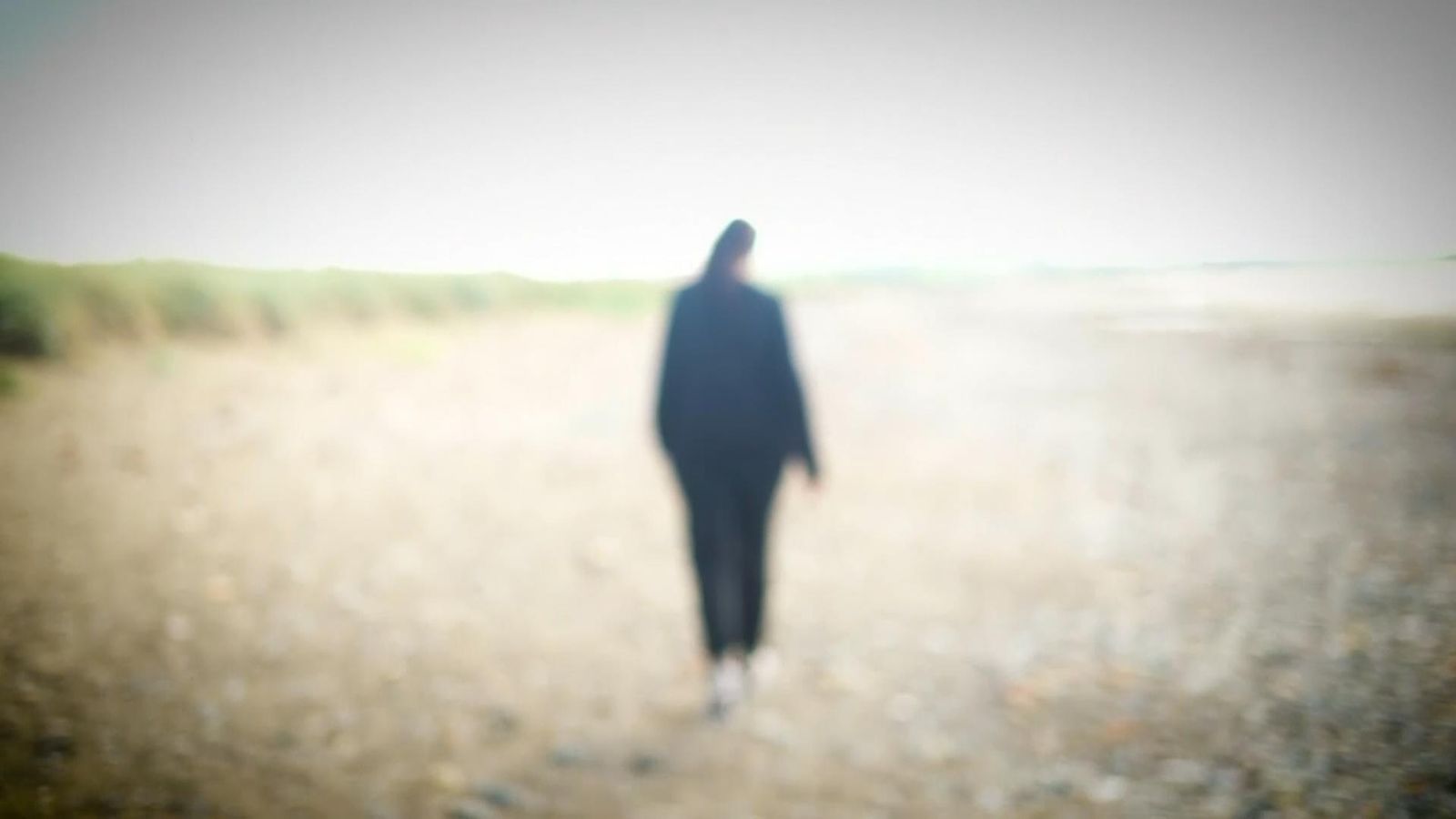Victims of domestic abuse are being discriminated against in the family courts and regularly lose custody of their children, sometimes to their abusers, according to campaigners, social workers and lawyers who’ve spoken to Sky News.
Courts and councils are accused of helping abusers to land a huge psychological blow on the victim and their child, by separating them and severely damaging their lives.
The situation is so bad, the domestic abuse commissioner says lawyers often advise clients not to tell the court they have been victims of domestic violence in case it is used against them.
Nicole Jacobs told Sky News that solicitors tell them: “The judge doesn’t like it, it complicates things.”
Barrister and advisor to the government on domestic abuse, Usha Sood, has described the situation as “scandalous”, and is among many calling for greater transparency in the family courts.
One leading campaigner on child sexual exploitation (CSE), Sammy Woodhouse, says that victims of CSE who become mothers are facing similar problems with “hundreds of women” contacting her to say: “I wish I’d never come forward because now they’re going to take my kids.”
Sky News looked at the case of “Sally”, whose daughter was removed from her care four years ago and given to her ex-partner, who she claims she had broken up with to escape from an abusive relationship.
Government asks Sally Challen’s defence lawyer to review domestic homicide laws
Government to announce plans to tackle violence against women and girls including 24/7 rape and assault helpline
Domestic abuse: Police urged to act after three-quarters of cases fail to end in charges
In disturbing footage of the moment her daughter is removed, the toddler reaches out and cries “mummy” as she is carried to a car to be taken away.
Campaigners say that for the abuser, child custody is often part of a malicious game to gain control of the victim, who has otherwise escaped the violent behaviour.
Sally told us when her ex-partner applied for custody, that’s how she viewed it.
She said: “I knew it was a game, I knew it was about control, I knew it was just going to be another abusive tactic to cause as much chaos and pain and drama as possible. And I just thought it was absolutely absurd.”
But the court ruled that her ex should have custody and Sally, who is DBS checked to work with other children, can now only have supervised contact with her own child once a fortnight.
We don’t have the partner’s side of the story, but the case was assessed by an independent social worker from another district.
She looked at the psychological report into the mother which informed the court that “the domestic violence work being undertaken by [the mother] was having a negative effect upon her ability to progress” and the social worker believes this was used to remove the child and place it with the alleged abuser.
In her assessment, the social worker concluded the mother “should have been encouraged/supported to engage in domestic violence work, not criticised for it”.
The report author also found that while the child was observed to have “an excellent relationship” with her mother and was reaching developmental milestones, the toddler often reacted badly to contact with the partner, screaming “no, no, no, don’t go” and “clawing at her mother”.
The report author, who we can’t identify for legal reasons, told Sky News: “I was basically shocked when I read the documents that were provided to me as to why this child was taken.
“It was absolutely appalling and shocking and highly disturbing.”
Ms Jacobs said: “These are the times when the stakes are highest. Someone losing their child to a perpetrator, someone that they feel and know is unsafe for their child, and these are decisions being made.
“And this is what’s happening day in and day out in our family courts, which is why we need so much more oversight.
“Many of them will say their own solicitor advised them not to raise domestic abuse.
“They’ll say they were advised because the opinion of that solicitor was quote-on-quote ‘the judge doesn’t like it, that it complicates things’ and so they will advise people to avoid raising those issues.
“Then of course there are real consequences to that if decisions are being made without understanding this history of abuse or the context of abuse within a family.
“And so, there is a real oddity about this, that we have players in the system who are in and out of courts every day thinking that the system is not able to understand domestic abuse so much that it’s best not to even talk about it.”
Ms Jacobs added: “It seems extreme, and it doesn’t make sense, and yet it’s happening in huge volumes every single day.”
There seems to be a range of reasons why victims of domestic abuse fall foul of the courts.
Sometimes they are not believed and are considered too protective of their children, not wanting their partner to have unsupervised access.
In other cases, they are portrayed as damaged, passing on psychological scars to their children.
The family court’s first consideration is always to protect the child, but campaigners say this can bring suspicion on parents who reach out for support and not just in domestic violence cases.
Rotherham has hundreds of victims from its infamous child abuse scandal – who are now parents themselves.
An independent report found that as children they were let down by the authorities, who made assumptions about them being prostitutes or making poor lifestyle choices.
Survivor and campaigner Sammy Woodhouse told Sky News similar assumptions are being made about a child abuse victim’s parenting skills.
She said: “If you’ve been raped or exploited, you know, we know that that can affect you not just for many years but sometimes for a lifetime, and that’s what they’re trying to use, in removing children.
“Then what’s happening is when children are being removed and if those children are being conceived through that abuse or rape, they are then given to the perpetrator.”
Ms Woodhouse added: “The man who raped me, he was offered to apply to courts not just for contact but for full custody.
“He’s sat in prison for 35 years for being, you know, one of the worst sex offenders in the country.
“Unfortunately, lessons aren’t being learnt.
“I’ve been contacted by hundreds of women around the country – so this isn’t just a Rotherham problem – saying ‘Sammy, I wish I’d never come forward. You know, I wish I’d have just kept my mouth shut and not told anyone because now they’re going to take my kids.'”
Another alleged victim of child abuse, “Kelly”, was groomed by a man from the age of 15. By 16 she had a baby.
She says she was made to have a Muslim marriage ceremony and was virtually imprisoned in the house, suffering regular domestic violence.
She told Sky News: “He was pulling me around by my hair, slapping me, dragging me about, kicking me, punching me, ripped my clothes, you know I had bald patches in my head from where he’d dragged me about by my hair.”
The father was even convicted of abuse against Kelly, but won custody partly because the boy said he wanted to be with his father.
Kelly says the boy was coerced. “He’d say to my son, you know, ‘Your mum’s a dirty white w****. She’s a dirty prostitute. You know, when you get older, when you get to 16, beat her up, kick her in the head, spit on her, come and live with me, she’s just a tramp.'”
Kelly’s barrister Usha Sood says the court should have seen the signs in her son’s behaviour: “There were several indicators, like he’d call her names.
“He swore at his mother many times. He would order her to do things, and he’d call her s***.”
Mrs Sood, an advisor to the government on domestic abuse, says her client’s story is the symptom of a wider problem.
She said: “I don’t think there’s any other way to describe it other than it is a real scandal that there hasn’t been a multi-faceted attempt to cure this.
“We see reports damning the police, we see reports damning the CPS for low prosecutions.
“We also see reports saying social services aren’t doing their job.
“But at the end of the day, all these agencies have a responsibility to tackle domestic abuse.”
In Sally’s case, a spokesperson for the local authority concerned told Sky News: “All the of the evidence in this case has been considered by the family courts, on several occasions and in front of different judges.
“The court has made the final decisions about the child’s care.
“Throughout these proceedings, the child has been represented by a court appointed guardian, independent of the local authority, to ensure that their views and wishes are heard.
“At all times we have acted in the best interests of the child.”
A Ministry of Justice report last year also criticised the balance given to abusers in private law children cases.
It said: “Submissions highlighted a feeling that abuse is systematically minimised, ranging from children’s voices not being heard, allegations being ignored, dismissed or disbelieved, to inadequate assessment of risk, traumatic court processes, perceived unsafe child arrangements, and abusers exercising continued control through repeat litigation.”
It found: “The courts almost always ordered some form of contact, frequently unrestricted, and usually without requiring an alleged abuser to address their behaviour.”
Campaigners are calling for more transparency.
They want the government to provide figures on numbers of abuse victims who’ve lost their children in the courts – and if a parent seeks mental health support due to abuse, then for help to be given, rather than their children taken away and sometimes given to the abuser.
A Ministry of Justice spokesperson said: “We are determined to keep victims and children safe.
“Last year we announced an overhaul of how family courts deal with domestic abuse cases.
“This will provide extra protections for victims, and we are currently reviewing the presumption of parental involvement where there is a risk of harm to a child.”






















